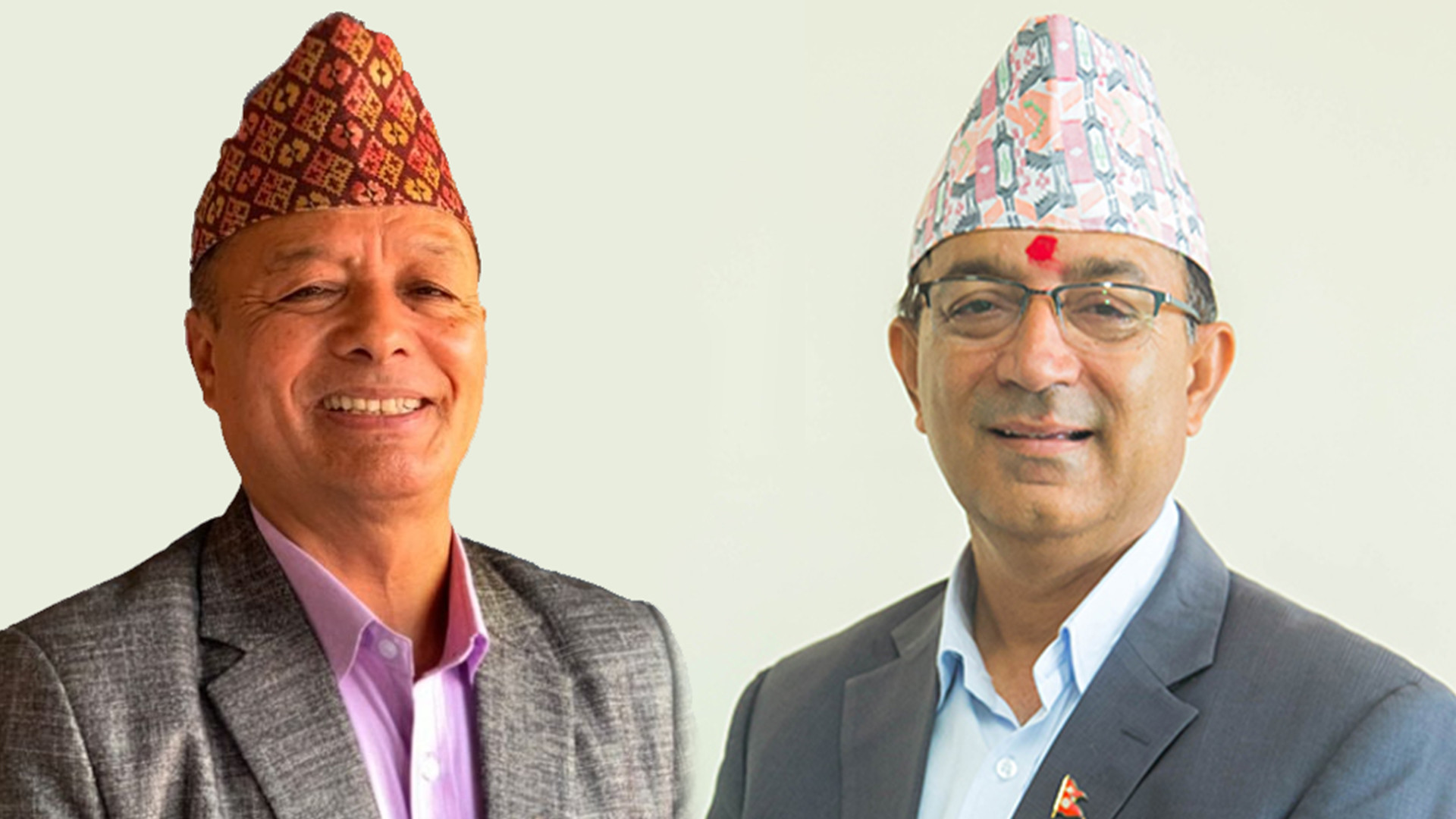Dhan Raj Acharya of CPN (Unified Socialist) looks ahead of Krishna Thapa in a very close fraternal race for mayor of Pokhara Metropolitan City which has always been won by CPN-UML in the local election since restoration of democracy in 1990.
Setopati talked with 150 voters reaching 25 of the 33 wards in what is the largest metropolitan city in the country by area ahead of the local election on Friday.
Fifty-six of them said that they will vote on pen for Acharya who is the common candidate of the five-party ruling coalition also including Nepali Congress (NC), CPN (Maoist Center) and Janata Samajwadi Party (JSP). Thirty-one of them said that they had voted for NC and 21 of them said they had voted for UML in the last local election.
Just two of the 21 erstwhile UML voters said that they have joined Unified Socialist formed after split of UML and the rest 19 said that they will vote for him even though they will vote for UML candidates for ward chair.
Two persons each from Maoist Center and Rastriya Janamorcha also said that they will vote for the common coalition candidate Acharya.
Just 38 out of the 150 respondents, on the other hand, said that they will vote for UML candidate Thapa.
This is surprising considering that UML’s mayoral candidate Man Bahadur GC (60,118 votes) had comfortably defeated NC candidate Ramji Kunwar (46,416) supported by Maoist Center in the last local election, and Unified Socialist has failed to build strong organization in Pokhara as well as Gandaki province.
Thirty-six out of the 38 who pledged to vote for Thapa said that they had voted for UML while the remaining two said they had voted for NC in the last local election.
We also found respondents who said they will vote for RPP candidate for mayor. Nine voters who said that they had voted for UML and NC in the last local election said that they will vote for RPP this time.
Forty-three of the respondents, including 15 who had voted for UML and seven for NC in the last local election, said that they have yet to decide about their choice for mayor. UML can save its bastion if all such undecided UML voters ultimately vote for Thapa. Acharya looks set to win if he manages to win even half of those undecided voters.
Acharya seems to be favorite to win despite weak organization of Unified Socialist mainly due to his image built over his long career as a UML politician and his comparatively amicable personality. There is also this perception among the UML base that Acharya, who is from the same village as the late UML leader Rabindra Adhikari, did not get opportunities that he deserved in the party.
UML candidate Thapa, on the other hand, was elected Pokhara mayor 25 years back and was provincial assembly member of Gandaki when he was given ticket by the party. Thapa is also known as a hard-working but abrasive leader.
Acharya also has the advantage of unflinching support from the ruling coalition. NC cadres who have always been trounced by UML in Pokhara have taken this as their genuine chance to get one up on UML and seemingly have no qualms to vote for the coalition candidate like it seems at other places across the country. That NC seems set to almost double its tally of winning chair in 11 wards in the last election is an added incentive for them if they needed any.
A few NC cadres seem to be unhappy with the coalition though but the four respondents seemed an exception rather than the rule and crucially said they would rather not vote at all than vote for UML candidate.
We found no Maoist voters in the urban areas of Pokhara but a few ones found in the Lekhnath area all said that they will vote for Acharya.
Acharya also seems to benefit from the fact that he comes from Lekhnath area and voters from the area are more likely to vote across the party line to elect someone from their area considering the divisions between the urban areas of Pokhara and Lekhnath area in the metropolitan city formed merging Pokhara sub-metropolitan city and Lekhnath municipality.
The major concern for coalition candidates is the risk of invalid votes due to confusion about who to vote for different posts in the local election as the coalition partners have shared different posts among themselves.
UML leaders said that some votes were invalid due to confusion about candidates even in the relatively straight-forward case of last federal and provincial assembly elections when UML and Maoist Center had allied with promise of post-election unification.
UML is contesting this election on its own in Pokhara and its voters can vote on sun for all the posts this time.
The coalition is aware about the risk of invalid votes due to the confusion and is focusing on voters’ education to minimize that.
But UML has the advantage of a very strong party organization in its traditional stronghold and sympathy of some of its voters for Acharya may not be enough to take him across the line.

